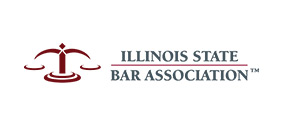Smith v. Smith
Appeal from the Circuit Court of Lincoln County to Missouri Court of Appeals – Eastern District
ED108399
Decision Filed March 30, 2021
Outcome: Reversed and Remanded.
The parties, V. Smith, (hereinafter “Wife”) and D. Smith (hereinafter “Husband) married in 1982. Wife filed for divorce in 2005. After lengthy court proceedings, a dissolution judgment was entered in May of 2007. During the divorce proceedings, Husband did not make his court ordered child support and maintenance payments and accrued significant arrears. Additionally, Husband also did not comply with discovery deadlines. As a result, Wife filed a Motion to Compel and a Motion for Sanctions.
On March 2, 2007, and after several hours of negotiation with counsel and parties present, the parties reached a settlement agreement on the record and the parties’ signed the Marital Settlement Agreement on May 15, 2007.
The Marital settlement agreement resolved the outstanding issues pertaining to past due child support and maintenance also provided in part that “each party released and discharged the other from any and all claims, demands, causes of action, whether in law or in equity, that they may have against the other” and that they understood the risks of engaging in limited discovery.
On December 22, 2009, Husband filed a motion to modify, motion for contempt, and petition for unjust enrichment (“Husband’s 2009 Motion”) requesting relief for $30,000.00 Bank of America credit card debt resulting from Wife writing checks during the dissolution proceedings on the basis that Husband was unaware of the debt. Husband also alleged he thought the Bank of America credit card was closed and he became aware of Wife’s credit card use after the parties’ dissolution judgment was entered.
Lengthy litigation ensured between the parties. Wife filed a Motion to Dismiss on the grounds of unclean hands and argued that Husband had released himself of any claims against her after signing the marital settlement agreement. At a hearing on these respective motions, Husband testified that he did not become aware of the credit card debt until after the divorce in 2007 and was unable to file any motions right away because he was deployed to Iraq and Afghanistan. Wife, on the other hand, testified that she assumed Husband knew about the credit card debt at the time of the settlement negotiations.
On September 21, 2010 Wife’s Motion to Dismiss was granted and Husband was ordered to pay $2000.00 in attorneys fees. In 2014 Husband filed a nearly identical cause of action – Motion for Equitable Relief – based on the Bank of America credit card debt incurred by Wife. In August 2019 the Judge entered a judgment in Father’s favor from which Mother now appeals.
In August 2019 Wife filed a motion for a new trial and/or to amend the trial court’s judgment. The trial court granted in part and denied in part Wife’s motion. This appeal then followed. On appeal Wife argued that Husband’s claims for relief from the credit card debt were barred based on res judicata and the trial court erred in finding that she had committed extrinsic fraud.
“Res judicata, also known as claim preclusion, bars the reassertion of a claim or cause of action that has been previously adjudicated in a proceeding between the same parties or those in privity with them.” Boehlein v. Crawford, 605 S.W.3d 135, 139 (Mo. App. E.D. 2020). The concept of res judicata also applies to “. . . to every claim properly belonging to the subject matter of the litigation and which the parties, exercising reasonable diligence, might have brought forward at the time.” Boehlein, 605 S.W.3d at 139. The Appellate Opinion also clarified that, “the doctrine of res judicata does not apply to a successful extrinsic fraud claim.” The Appellate Opinion went on to note that, “Extrinsic fraud refers to the fraudulent procurement of a judgment; therefore, the fraud must relate, not to the propriety of the judgment itself, but to the manner in which the judgment was obtained.” Vinson, 725 S.W.2d at 124.
The Appellate Court found that Husband’s claims regarding the Bank of America Credit Card Account were barred by res judicata. Specifically, the Appellate Court noted that following during the hearing held following Husband’s 2009 motion filing, Husband’s attorney did cross examine Wife about the Bank of America Credit Card debt. The Judge’s 2010 judgment made several findings on the merits of Husband’s 2009 Motion based on the evidence at the hearing, and the judgment effectively found that Husband has an obligation to pay monies owed on the Bank of America credit card. The Appellate Opinion held that, “we find the judgment was a determination on the merits as to Husband’s claim that he was entitled to relief on the approximately $30,000.00 in Bank of America credit card debt resulting from Wife writing checks during the dissolution proceedings. This is because Husband had a full and fair opportunity to litigate his claim, the claim was litigated by the parties, and the claim was decided by the court.” The Appellate Court also noted that Husband’s 2014 motion arose from the same facts that had been ligated in 2010.
The Appellate Court also held that the trial court made an erroneous finding that Wife committed extrinsic fraud. Specifically, the Appellate Court noted that, “. . . Husband’s failure to show an absence of fault, neglect, or inattention during the pendency of the dissolution proceedings and after the dissolution judgment was entered is fatal to his claim of extrinsic fraud.”
The trial court’s August 2019 judgment is reversed, and the case is remanded for further proceedings consistent with this opinion.






